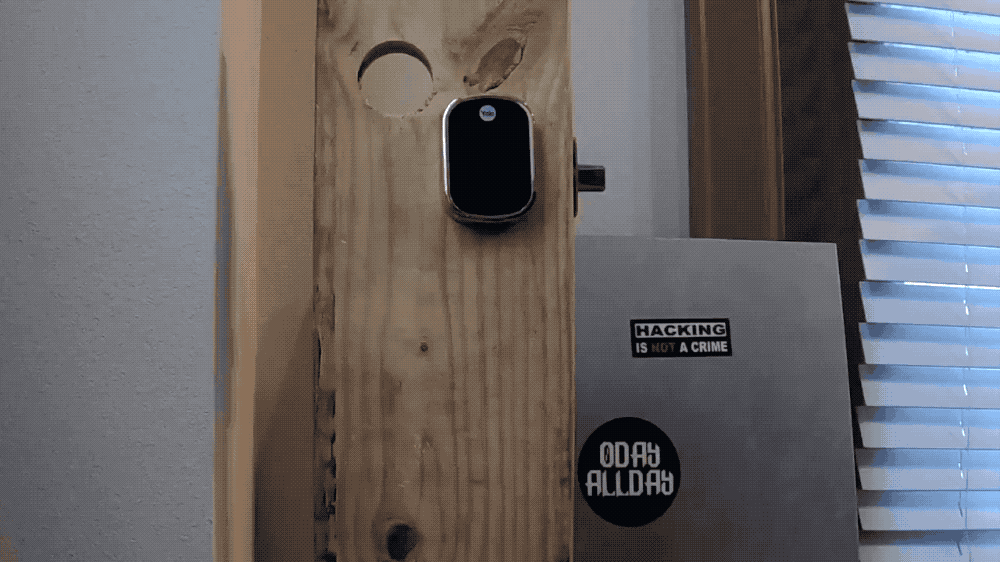Security flaws in a popular smart home hub let hackers unlock front doors
When is a smart home not so smart? When it can be hacked.
That’s exactly what security researchers Chase Dardaman and Jason Wheeler did with one of the Zipato smart hubs. In new research published Tuesday and shared with TechCrunch, Dardaman and Wheeler found three security flaws which, when chained together, could be abused to open a front door with a smart lock.
Smart home technology has come under increasing scrutiny in the past year. Although convenient to some, security experts have long warned that adding an internet connection to a device increases the attack surface, making the devices less secure than their traditional counterparts. The smart home hubs that control a home’s smart devices, like water meters and even the front door lock, can be abused to allow landlords entry to a tenant’s home whenever they like.
In January, security expert Lesley Carhart wrote about her landlord’s decision to install smart locks — forcing her to look for a new home. Other renters and tenants have faced similar pressure from their landlords and even sued to retain the right to use a physical key.
Dardaman and Wheeler began looking into the ZipaMicro, a popular smart home hub developed by Croatian firm Zipato, some months ago, but only released their findings once the flaws had been fixed.
The researchers found they could extract the hub’s private SSH key for “root” — the user account with the highest level of access — from the memory card on the device. Anyone with the private key could access a device without needing a password, said Wheeler.
They later discovered that the private SSH key was hardcoded in every hub sold to customers — putting at risk every home with the same hub installed.
Using that private key, the researchers downloaded a file from the device containing scrambled passwords used to access the hub. They found that the smart hub uses a “pass-the-hash” authentication system, which doesn’t require knowing the user’s plaintext password, only the scrambled version. By taking the scrambled password and passing it to the smart hub, the researchers could trick the device into thinking they were the homeowner.
All an attacker had to do was send a command to tell the lock to open or close. With just a few lines of code, the researchers built a script that locked and unlocked a smart lock connected to a vulnerable smart hub.

The proof-of-concept code letting the hackers unlock a smart lock (Image: Chase Dardaman, Jason Wheeler)
Worse, Dardaman said that any apartment building that registered one main account for all the apartments in their building would allow them to “open any door” from that same password hash.
The researchers conceded that their findings weren’t a perfect skeleton key into everyone’s homes. In order to exploit the flaws, an attacker would need to be on the same Wi-Fi network as the vulnerable smart hub. Dardaman said any hub connected directly to the internet would be remotely exploitable. The researchers found five such vulnerable devices using Shodan, a search engine for publicly available devices and databases.
Zipato says it has 112,000 devices in 20,000 households, but the exact number of vulnerable hubs isn’t known.
We asked SmartRent, a Zipato customer and one of the largest smart home automation providers, which said fewer than 5% of its apartment-owning customers were affected by the vulnerable technology. A spokesperson wouldn’t quantify the figure further. SmartRent said it had more than 20,000 installations in mid-February, just weeks before the researchers’ disclosure.
For its part, Zipato fixed the vulnerabilities within a few weeks of receiving the researchers’ disclosure.
Zipato’s chief executive Sebastian Popovic told TechCrunch that each smart hub now comes with a unique private SSH key and other security improvements. Zipato has also since discontinued the ZipaMicro hub in favor of one of its newer products.
Smart home tech isn’t likely to go away any time soon. Figures from research firm IDC estimate more than 832 million smart home devices will be sold in 2019, just as states and countries crack down on poor security in internet-connected devices.
That’s also likely to bring more scrutiny to smart home tech by hackers and security researchers alike.
“We want to show that there is a risk to this kind of tech, and apartment buildings or even individual consumers need to know that these are not necessarily safer than a traditional door lock,” said Dardaman.
One thought on “Security flaws in a popular smart home hub let hackers unlock front doors”